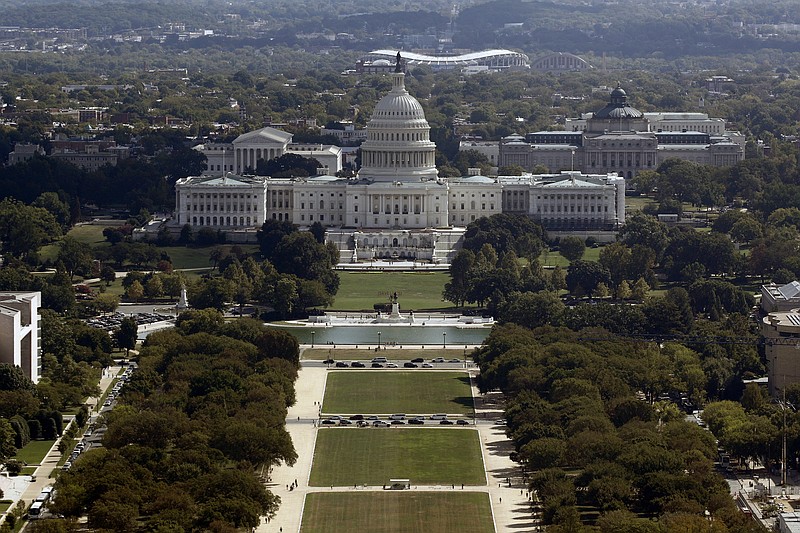WASHINGTON -- The federal government incurred its biggest monthly budget deficit in history in June as spending on programs to combat the recession sparked by the coronavirus pandemic exploded while millions of job losses cut into tax revenue.
On Monday, the U.S. Treasury Department reported that the deficit hit $864.1 billion last month, an amount of red ink that surpasses most annual deficits in the nation's history and is above the previous monthly deficit record of $738 billion set in April. That amount was also tied to the trillions of dollars Congress has provided to cushion the impact of the widespread shutdowns that occurred in an effort to limit the impact and spread of the pandemic.
For the first nine months of the current budget year, which began Oct. 1, the overall federal deficit totalled $2.74 trillion, also a record for that period. That puts the country well on the way to hitting the $3.7 trillion deficit for the entire fiscal year that has been forecast by the Congressional Budget Office.
That total would surpass the previous annual record of $1.4 trillion set in 2009 when the government was spending heavily to lift the country out of the recession caused by the 2008 financial crisis.
The June deficit was driven higher by spending on various government relief programs such as an extra $600 per week in expanded unemployment benefits and a Paycheck Protection Program that provided support to businesses to keep workers on their payrolls.
The report showed that the cost of the paycheck program in June was $511 billion. That reflected a charge to the government for all the bank loans made under the program even though the government will not actually have to pay out funds until the banks determine whether the businesses met the criteria for having the loans forgiven. Those requirements include spending at least 60% of the loan amount on worker pay, with the other 40% going to overhead costs such as rent and utilities.
So far this budget year, revenue totalled $2.26 trillion, down 13.4% from the same period last year, while spending totalled $5 trillion, up 49.1% from a year ago.
Another reason for the surge in the June deficit was the government's decision to delay tax payments this year until July 15. That decision means that quarterly payments made by individual taxpayers and corporations will not be due until Wednesday rather than in June.
"Today's record deficits are mainly a product of our response to the current pandemic -- once the economy recovers we need to get our deficit under control," said Marc Goldwein, senior vice president at the Committee for a Responsible Federal Budget.
Numerous White House officials and conservative Republican lawmakers have expressed frustration with the amount of spending approved by Congress and stressed caution over further efforts. As a result, the GOP opted for a wait-and-see approach while House Democrats approved more than $3 trillion in new spending in May. Concerns about the deficit have affected the current round of negotiations, with some White House and GOP officials pushing for the next stimulus package to be limited to $1 trillion.
The Congressional Budget Office estimate of a $3.7 trillion deficit for this year could go higher depending on the course of the economy.
The country fell into a deep recession in February, ending a record-long expansion of nearly 11 years. The Trump administration is predicting that the economy will come roaring back in the second half of this year, but many private forecasters are concerned that a resurgence of virus cases could make consumers too fearful to resume spending, which drives 70% of the economy.
Congress, which has already approved more than $3 trillion in a series of rescue packages, is scheduled to debate another support effort when it returns from recess Monday. Democrats are pushing for an extension of the expanded unemployment benefits that will soon run out.
Accumulating deficits add to the overall federal debt, which totaled nearly $26.5 trillion as of Thursday. That figure includes more than $6 trillion the government owes itself, including about $2.9 trillion borrowed from the Social Security Trust Fund, according to Treasury Department reports.
Information for this story was contributed by Jeff Stein of The Washington Post.

